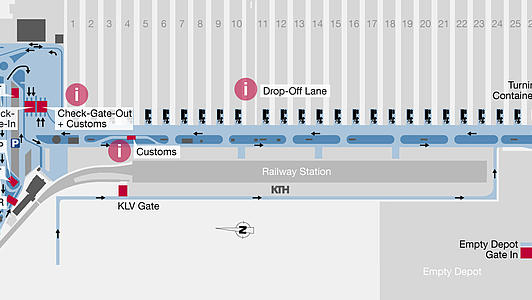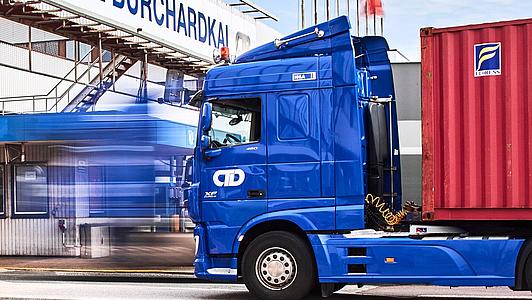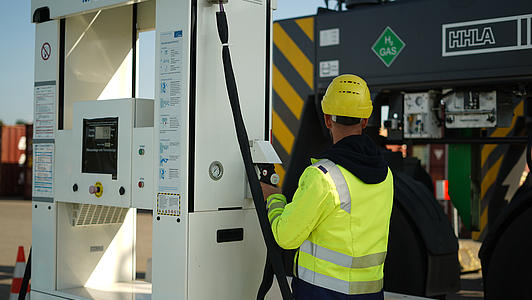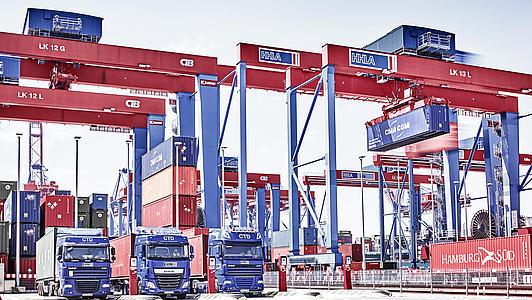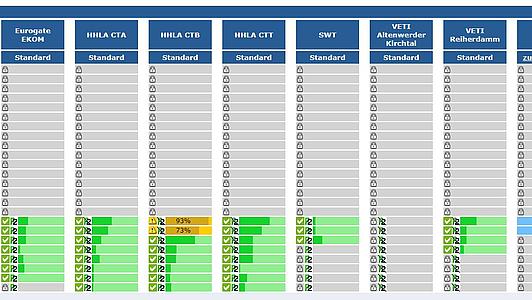Haulage companies and truck drivers
Please find out about the procedures at our terminals before your journey. To do so, we are providing you here with information, maps and brochures.
Note on truck handling at CTA, CTB, CTT: Please note that as of 2 December 2024, truck handling at all HHLA Container Terminals in Hamburg will no longer be carried out via the Trucker Card but exclusively via the passify app.

The Power of Networks
We connect places, companies and people – shaping the logistics of tomorrow. To achieve this, we build on intelligent solutions and the power of our networks.
Learn more